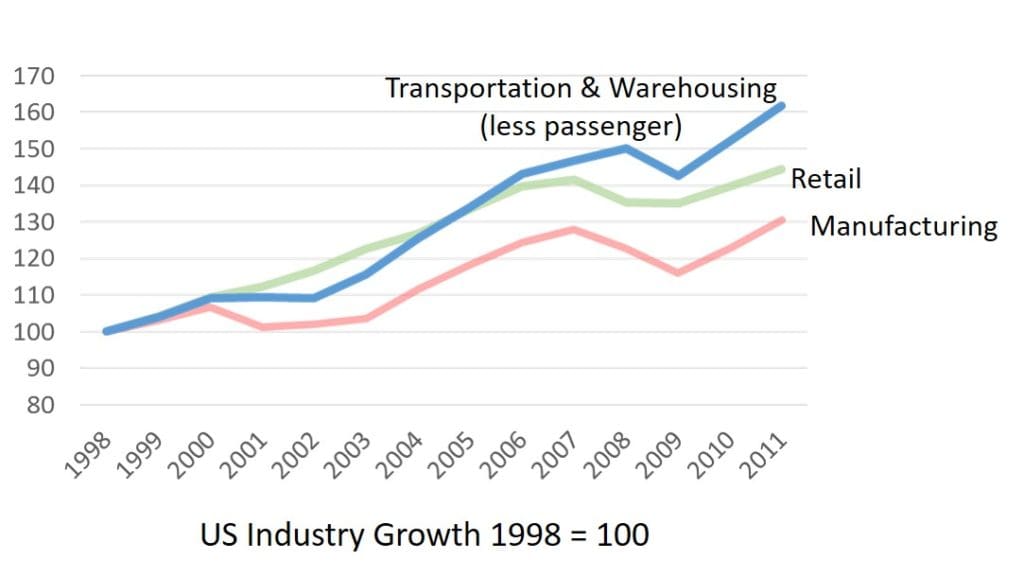Richard Peretz, UPS CFO, was on CNBC yesterday morning discussing the company’s most recent earnings release. The interview addressed a number of prominent topics in the logistics world. First of all, he noted the ongoing increase in B-to-C as a percentage of UPS’ overall business, and as we have stated repeatedly on Logistics Viewpoints, this is driven by the boom in e-commerce. Secondly, he noted the company’s ongoing investment in the automation of its US network and stated that UPS has completed only 3 out of 30 planned hub automation projects on the company’s automation investment agenda. The scale of this automation initiative is certainly a great example of the warehouse automation investment currently underway in the parcel industry. But the third topic of the discussion was the Trump administration’s agenda on business and trade. I would like to focus the rest of this article on my view toward trade and the Trump administration, as trade directly impacts that logistics industry.
Mr. Peretz stated that UPS is optimistic on simplified trade rules and other information coming out of the Trump administration. He was pressed further on proposed regulations and bills, a 20 percent tax on US imports (I believe they were referring to a border tax proposal) was specifically mentioned. The trade topic was noted as particularly relevant to UPS as a logistics provider. In fact, logistics as an industry has grown as a component of US GDP more quickly than manufacturing and even retail trade in the recent past (see attached diagram of US industry growth rates). Mr. Peretz responded by stating that these proposals are just that, “proposals.” I found that to be a simple yet telling point.
There appears to be a sizable amount of angst surrounding the possibility of the Trump administration enacting a protectionist agenda and sparking a trade war. I believe free trade in general is a net benefit to society. As I stated in a recent article on global trade, it allows local economies, regions, companies, and individuals to specialize, harness their own comparative advantages, and to leverage concepts such as economics of scale to further deliver increased productivity and value through trade. I also believe it is a commonly held view in government, business, and international relations that mutually beneficial trade delivers economic prosperity. However, it is worth noting that some businesses and individuals bear a disproportionate share of the costs due to labor and competitive displacement. It is the protection of these companies and at-risk livelihoods that protectionism appeals to. However, often these protectionist policies serve as a detriment to the larger economy. It is this dynamic that I consider the “protectionist’s dilemma”. I believe it is likely that Trump holds the view that trade is a net benefit to society, and I believe heads of foreign states believe Trump holds this view. Therefore, I see the new administration’s proposals (bilateral rather than multilateral agreement, threatened import taxes, etc.) as posturing and rhetoric to set up future negotiations to leverage the US’s economic clout in an effort to extract trade benefits on the margin. I personally do not see a trade war resulting. However, I do believe there may be some changes that negatively and positively affect specific businesses and individuals. But for now, I remain optimistic that the US transportation, warehousing, and logistics sector will continue to grow at a more rapid pace than the manufacturing sector, and even possibly retail.


















